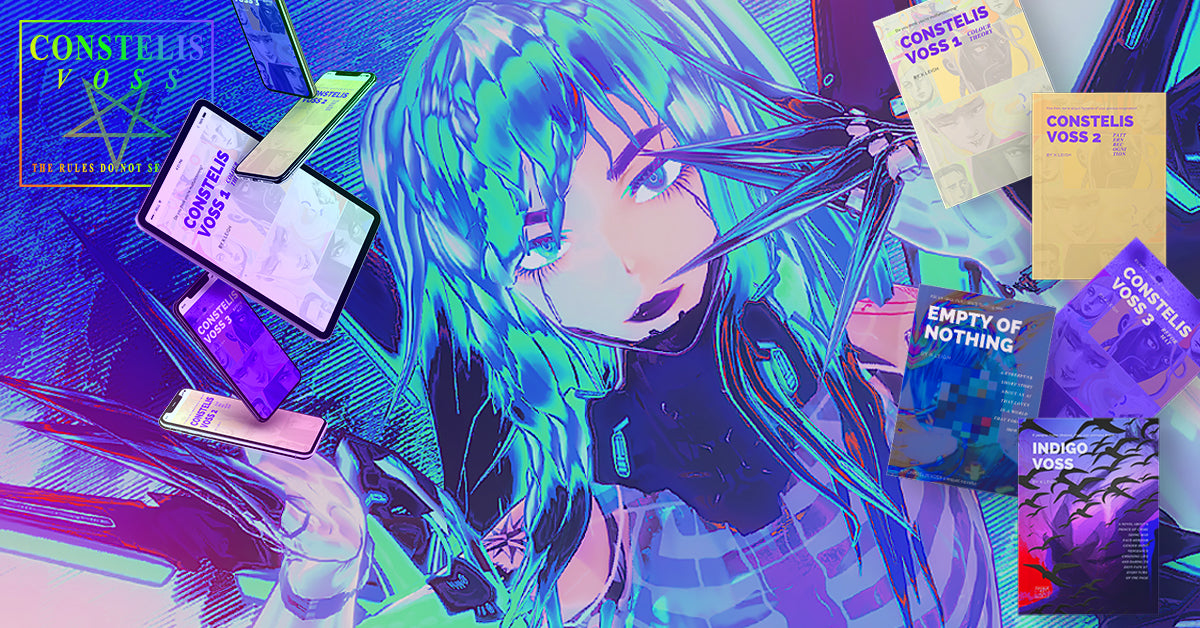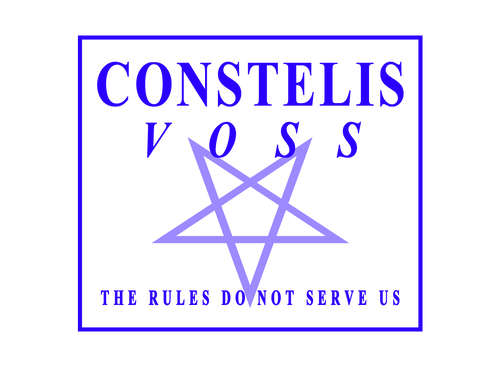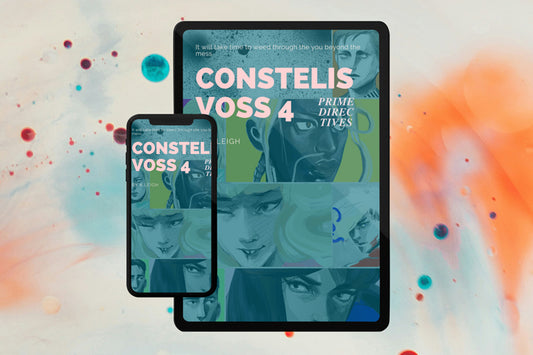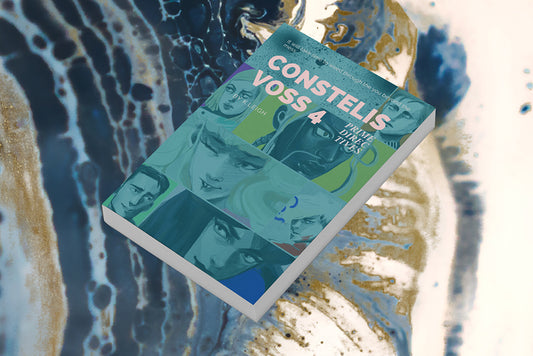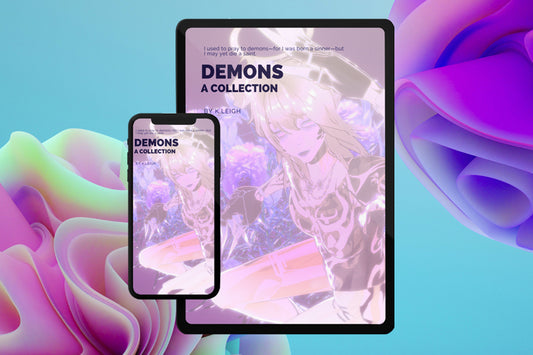Epic science fiction isn't just aesthetics. It's not space flight, glamorous technology, or exploring alien worlds. It's a genre with the power to pose profound questions about existence. That's the secret of truly epic sci-fi books: it's not about artifice, it's about what it means to be alive.
Getting Gritty with Cyberpunk
To start this exodus, let's talk about the cyberpunk genre. Cyberpunk was a response to the tech boom of the late 20th century and gave us a bleak, if stylish, vision of the future. Think: cutting-edge technology and a gritty 80s vibe. But it's not all neon lights and people hooked up to machines; it's the nitty-gritty of human nature under techno-capitalism. Which is definitely something all of us can relate to these days.
Take William Gibson's groundbreaking novel "Neuromancer," for example. Case is a washed-up hacker navigating the dangerous waters of cyberspace and corporate devilry. In this dire world, "Neuromancer" book asks hard questions about identity, free will, and where the line between human and machine blurs.
In cyberpunk stories, characters find themselves in a moral maze tinged with tech, facing impossible choices. Sound familiar? It's like holding up a mirror to our own ethical issues in the face of an ever-encroaching technocracy. The point I'm trying to make is that cyberpunk isn't about neon lights and robot implants. That's just the window dressing. Cyberpunk is about wrestling with our moral compass and what it means to be human. When cyberpunk books beg big questions, that's when they're at their best.
(Psst: Check out my op-ed about how Cyberpunk 2077 has deep themes, actually for a video game slant on the genre. I used to hate it and now it's probably in my top 10. I'm serious!)
Dystopian Sci-Fi: A Reality Check
Now, let's shift gears and talk dystopian sci-fi and why the genre is more than just a depressing gloom-fest. Books like George Orwell's "1984" and Aldous Huxley's "Brave New World" aren't just cautionary tales; they're warnings about totalitarianism and loss of individuality.
These dystopian stories shine a light on the politics of power, social control mechanics, and erosions personal freedoms. The heroes and heroines find themselves trapped in oppressive systems, desperately trying to hold onto their humanity, after all. Sound familiar? Welcome to 2023, baby.
In "1984," Winston Smith lives under the constant watchful eye of the Party in Oceania, where even your thoughts aren't your own. It's a book that shows us just how far people will go to preserve their sense of self against impossible odds. Winston's struggle under an oppressive regime reminds us of the unbreakable human spirit, which is exactly where dystopian sci-fi thrives.
Tackling the dystopian problem from a different angle, "Brave New World" paints a picture of a society that willingly gives up individuality for stability. It makes us question the cost of conformity and the role of autonomy in defining what it means to be a person. Books like "Brave New World" make us think about whether a life free from suffering is worth the cost. If it's not clear, dystopian sci-fi isn't powerful because it's dire, moody and fantastical. It's not about doom and gloom, it's about questioning the ruling elite's world order.
Beyond the Clichés
Sci-fi aesthetics, alien lore and space exploration aren't what makes sci-fi books so compelling. In fact, if all a book does is get you hype about robots, aliens or fighting space battles, you're better off just watching a pulpy TV show. The true strength of the literary genre and its sub-genres rests in timeless explorations of humanity, suffering, choice, agency and more. Sci-fi narratives invite us to examine our own lives. That's why the science fiction genre is so critical, regardless of what the Space Fleet enthusiasts may tell you.
Sci-Fi as a Mirror to Society
As we grapple with 21st-century challenges like contentifuckation, tech's war on art and more, sci-fi books offer a unique lens to examine society and personhood. Sci-fi books even become a catalyst for critical conversations about ethics, technology, AI, and more.
For example: the exploration of surveillance and government control in dystopian sci-fi reframes ongoing debates about privacy and individual rights. The rise of advanced tech like artificial intelligence in cyberpunk tales kickstarts discussions about the vast ethical dilemmas presented by AI. Sci-fi—when done right—isn't just a glimpse into a fantastical future. Like all good art, sci-fi is a tool to synthesize and decode real-world issues.
The Multi-Faceted Characters of Science Fiction
Another point that sets sci-fi apart is its characterization. Often, sci-fi casts struggle with their place in the world, just like real people. It's a rare day you read a sci-fi story with a bunch of privileged folks taking center stage. In fact, very many sci-fi titles feature characters who struggle with classism. That's sort of the point of the genre: you can't really explore social issues when your cast is made up of characters who won't ever experience them. While sci-fi characters may shape their world and might even be robots, they largely remain pretty goddamn relatable. The genre requires it.
Let's talk about Rick Deckard in Philip K. Dick's "Do Androids Dream of Electric Sheep?" If you've seen "Blade Runner" (one of my favorite movies), you're in the right neighborhood. Deckard is a bounty hunter tasked with taking down rogue androids known as replicants, but his journey isn't just about the hunt. It's a thematic tapestry of empathy, identity, and what it really means to be human. There are even fan theories that Deckard himself is a replicant. Wild, right?
Deckard's moral struggles highlight questions of sentiency, autonomy and the limits of measuring a man. Is there really any difference between a replicant and a human? Are you your memories? Are you something more?
Sci-fi Books as Portal to Deeper Thinking
Sci-fi isn't just escapism; it's an invitation to ponder some seriously deep philosophical questions. It challenges us to think about reality, consciousness, society, the self and more. Sci-fi books push us to question our place in a chaotic universe.
So, whether you're exploring the gritty streets of cyberpunk or braving the dystopian nightmares, remember that sci-fi isn't just about flashy aesthetics—it's a journey. Sci-fi is a genre that invites us to look in the mirror and ask: Who are we? Where are we headed? And what does it mean to be human?
